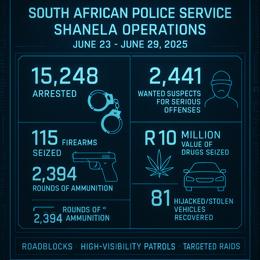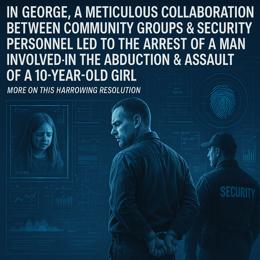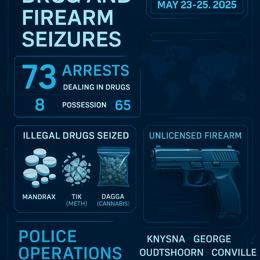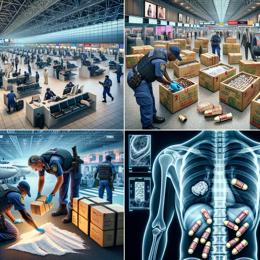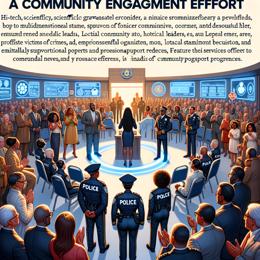Image created by AI
The Crucial Role of IPID in Upholding Justice Amidst KZN's Crime Challenges
KwaZulu-Natal (KZN) stands as a stark reminder of the crime-and-violence dilemma facing South Africa. A report on a series of police shootings in the province, resulting in 20 casualties for the month of July alone, underscores the urgent need for effective crime-fighting strategies under the rule of law.
The province, with notorious crime hotspots like uMlazi, Inanda, and parts of Pietermaritzburg, is in dire need of intervention. Local authorities, understanding the gravity of the situation, must not only prioritize KZN but also embrace a comprehensive approach to battling criminality. State organs' tactics and strategies to combat crime in these townships should be intensive yet legally sanctioned to protect the rights of all citizens, inevitably sustaining the democratic foundations laid out by South Africa's Constitution.
The recent spate of police shootings brings to light the enormous pressures law enforcement officers face, operating in critical conditions that demand immediate life-or-death decisions. However, KZN Police Commissioner Lieutenant-General Nhlanhla Mkhwanazi's efforts in curbing crime must still be balanced with constitutional obligations and adherence to due process.
This is where the Independent Police Investigative Directorate (Ipid) becomes an indispensable actor in crime-fighting narratives. Ipid's mandate to inspect and assess incidents involving police members is a cornerstone of democratic governance and accountability. But for Ipid to function efficiently, it must not only stand without fear or favor but should also be equipped with sufficient resources.
Currently, the resource constraints and lack of institutional support might hinder Ipid's mission to foster and retain a culture of policing that respects human rights and duties. The prospect of an underfunded and overstrained directorate raises serious concerns regarding the capability of Ipid to bring justice and ensure that police brutality or misconduct doesn't tarnish the legal integrity of the force.
Consequently, a call to action is clear: to reinforce Ipid's operational capacities, ensuring unbiased oversight over law enforcement proceedings and disciplining misconduct with accountability. Policymakers and legislators must commit to bolstering the directorate, securing its independence, and furnishing it with the tools necessary to perform its critical role effectively.
In building a safer, more equitable society, the reinforcement of Ipid can't be understated. Upholding justice and due process reaffirms the commitment to human rights and public trust in law enforcement, essential components for stability and peace in the bustling communities of KZN and beyond.

